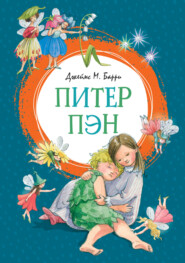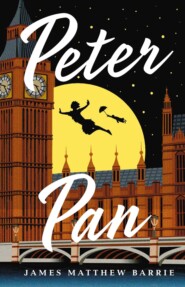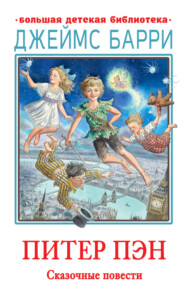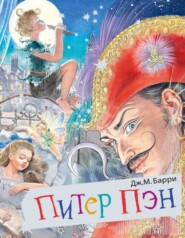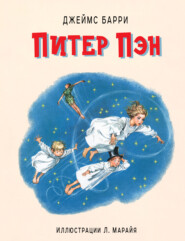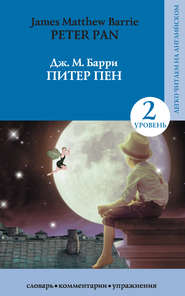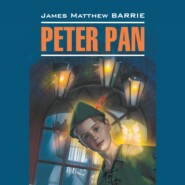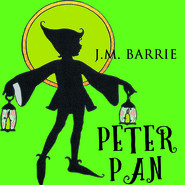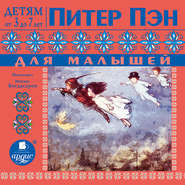По всем вопросам обращайтесь на: info@litportal.ru
(©) 2003-2024.
✖
The Little Minister
Настройки чтения
Размер шрифта
Высота строк
Поля
“Who won – ”
“Who – ”
“Who – ”
“I’ll play you on Monday for whatever you like!” shrieked the doctor.
“If it holds,” cried the minister, “I’ll be here the whole day. Name the stakes yourself. A stone?”
“No,” the doctor said, “but I’ll tell you what we’ll play for. You’ve been dinging me doited about that eldership, and we’ll play for’t. If you win I accept office.”
“Done,” said the minister, recklessly.
The dogcart was now turned toward Windyghoul, its driver once more good-humoured, but Gavin silent.
“You would have been the better of my deaf ear just now, Mr. Dishart,” McQueen said after the loch had been left behind. “Aye, and I’m thinking my pipe would soothe you. But don’t take it so much to heart, man. I’ll lick him easily. He’s a decent man, the minister, but vain of his play, ridiculously vain. However, I think the sight of you, in the place that should have been his, has broken his nerve for this day, and our side may win yet.”
“I believe,” Gavin said, with sudden enlightenment, “that you brought me here for that purpose.”
“Maybe,” chuckled the doctor; “maybe.” Then he 109 changed the subject suddenly. “Mr. Dishart,” he asked, “were you ever in love?”
“Never!” answered Gavin violently.
“Well, well,” said the doctor, “don’t terrify the horse. I have been in love myself. It’s bad, but it’s nothing to curling.”
Chapter Twelve.
TRAGEDY OF A MUD HOUSE
The dogcart bumped between the trees of Caddam, flinging Gavin and the doctor at each other as a wheel rose on some beech-root or sank for a moment in a pool. I suppose the wood was a pretty sight that day, the pines only white where they had met the snow, as if the numbed painter had left his work unfinished, the brittle twigs snapping overhead, the water as black as tar. But it matters little what the wood was like. Within a squirrel’s leap of it an old woman was standing at the door of a mud house listening for the approach of the trap that was to take her to the poorhouse. Can you think of the beauty of the day now?
Nanny was not crying. She had redd up her house for the last time and put on her black merino. Her mouth was wide open while she listened. If you had addressed her you would have thought her polite and stupid. Look at her. A flabby-faced woman she is now, with a swollen body, and no one has heeded her much these thirty years. I can tell you something; it is almost droll. Nanny Webster was once a gay flirt, and in Airlie Square there is a weaver with an unsteady head who thought all the earth of her. His loom has taken a foot from his stature, and gone are Nanny’s raven locks on which he used to place his adoring hand. Down in Airlie Square he is weaving for his life, and here is Nanny, ripe for the poorhouse, and between them is the hill where they were lovers. That is all the story save that when Nanny heard the dogcart she screamed.
No neighbour was with her. If you think this hard, it is because you do not understand. Perhaps Nanny had never been very lovable except to one man, and him, it is said, she lost through her own vanity; but there was much in her to like. The neighbours, of whom there were two not a hundred yards away, would have been with her now but they feared to hurt her feelings. No heart opens to sympathy without letting in delicacy, and these poor people knew that Nanny would not like them to see her being taken away. For a week they had been aware of what was coming, and they had been most kind to her, but that hideous word, the poorhouse, they had not uttered. Poorhouse is not to be spoken in Thrums, though it is nothing to tell a man that you see death in his face. Did Nanny think they knew where she was going? was a question they whispered to each other, and her suffering eyes cut scars on their hearts. So now that the hour had come they called their children into their houses and pulled down their blinds.
“If you would like to see her by yourself,” the doctor said eagerly to Gavin, as the horse drew up at Nanny’s gate, “I’ll wait with the horse. Not,” he added, hastily, “that I feel sorry for her. We are doing her a kindness.”
They dismounted together, however, and Nanny, who had run from the trap into the house, watched them from her window.
McQueen saw her and said glumly, “I should have come alone, for if you pray she is sure to break down. Mr. Dishart, could you not pray cheerfully?”
“You don’t look very cheerful yourself,” Gavin said sadly.
“Nonsense,” answered the doctor. “I have no patience with this false sentiment. Stand still, Lightning, and be thankful you are not your master to-day.”
The door stood open, and Nanny was crouching against the opposite wall of the room, such a poor, dull kitchen, that you would have thought the furniture had still to be brought into it. The blanket and the piece of old carpet that was Nanny’s coverlet were already packed in her box. The plate rack was empty. Only the round table and the two chairs, and the stools and some pans were being left behind.
“Well, Nanny,” the doctor said, trying to bluster, “I have come, and you see Mr. Dishart is with me.”
Nanny rose bravely. She knew the doctor was good to her, and she wanted to thank him. I have not seen a great deal of the world myself, but often the sweet politeness of the aged poor has struck me as beautiful. Nanny dropped a curtesy, an ungainly one maybe, but it was an old woman giving the best she had.
“Thank you kindly, sirs,” she said; and then two pairs of eyes dropped before hers.
“Please to take a chair,” she added timidly. It is strange to know that at that awful moment, for let none tell me it was less than awful, the old woman was the one who could speak.
Both men sat down, for they would have hurt Nanny by remaining standing. Some ministers would have known the right thing to say to her, but Gavin dared not let himself speak. I have again to remind you that he was only one-and-twenty.
“I’m drouthy, Nanny,” the doctor said, to give her something to do, “and I would be obliged for a drink of water.”
Nanny hastened to the pan that stood behind her door, but stopped before she reached it.
“It’s toom,” she said. “I – I didna think I needed to fill it this morning.” She caught the doctor’s eye, and could only half restrain a sob. “I couldna help that,” she said, apologetically. “I’m richt angry at myself for being so ungrateful like.”
The doctor thought it best that they should depart at once. He rose.
“Oh, no, doctor,” cried Nanny in alarm.
“But you are ready?”
“Ay,” she said, “I have been ready this twa hours, but you micht wait a minute. Hendry Munn and Andrew Allardyce is coming yont the road, and they would see me.”
“Wait, doctor,” Gavin said.
“Thank you kindly, sir,” answered Nanny.
“But Nanny,” the doctor said, “you must remember what I told you about the poo – , about the place you are going to. It is a fine house, and you will be very happy in it.”
“Ay, I’ll be happy in’t,” Nanny faltered, “but, doctor, if I could just hae bidden on here though I wasna happy!”
“Think of the food you will get; broth nearly every day.”
“It – it’ll be terrible enjoyable,” Nanny said.
“And there will be pleasant company for you always,” continued the doctor, “and a nice room to sit in. Why, after you have been there a week, you won’t be the same woman.”
“That’s it!” cried Nanny with sudden passion. “Na, na; I’ll be a woman on the poor’s rates. Oh, mither, mither, you little thocht when you bore me that I would come to this!”
“Nanny,” the doctor said, rising again, “I am ashamed of you.”
“I humbly speir your forgiveness, sir,” she said, “and you micht bide just a wee yet. I’ve been ready to gang these twa hours, but now that the machine is at the gate, I dinna ken how it is, but I’m terrible sweer to come awa’. Oh, Mr. Dishart, it’s richt true what the doctor says about the – the place, but I canna just take it in. I’m – I’m gey auld.”
“You will often get out to see your friends,” was all Gavin could say.
“Na, na, na,” she cried, “dinna say that; I’ll gang, but you mauna bid me ever come out, except in a hearse. Dinna let onybody in Thrums look on my face again.”
“We must go,” said the doctor firmly. “Put on your mutch, Nanny.”
“I dinna need to put on a mutch,” she answered, with a faint flush of pride. “I have a bonnet.”






